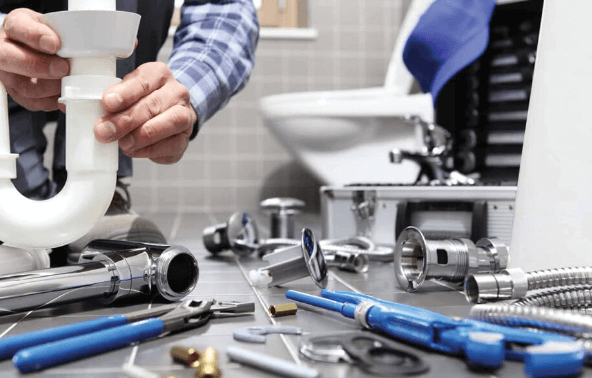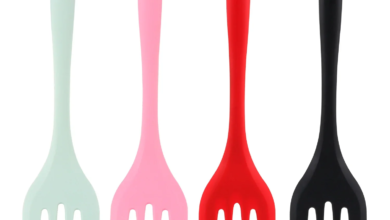Common Plumbing Myths Busted: What Every Homeowner Should Know

Many plumbing myths can lead to costly issues if believed. For instance, using chemical drain cleaners can damage pipes over time, while the idea that “flushable” wipes are safe often results in clogs. Homeowners should also avoid assuming small leaks are harmless, as they can lead to more significant problems. Understanding the facts about plumbing can help homeowners take better care of their systems and prevent unnecessary repairs.
Introduction
Plumbing is essential to any home, yet the myths surrounding it could lead to unnecessary headaches. From misleading advice about pipe materials to misconceptions about water heaters, the information can be daunting. For instance, some homeowners may believe frequent drain cleaners are harmless, but this could cause significant damage over time. Instead, getting insights from expert plumbers San Marcos and recognizing these myths can prevent costly repairs. A deep understanding of accurate plumbing knowledge empowers homeowners to make wise decisions that can prolong the life and efficiency of their plumbing systems.
This article emphasizes the value of factual information in home maintenance by thoroughly grasping common plumbing myths. It offers insights to avoid unnecessary repairs and expenses, promoting a more proactive and scientifically backed approach.
See also: Leading Causes Of Water Damage In Commercial Buildings
Plumbing Myths That Could Cost You
Homeowners often need clarification about drain cleaners and plumbing leaks. Over time, chemical cleaners can corrode pipes, leading to leaks and potential replacements. Alternatives like baking soda and vinegar offer a safer, eco-friendly solution. Additionally, many plumbing leaks are hidden within walls or floors, causing damage long before detection. Professional inspections can identify these issues early, saving homeowners from costly repairs and water loss.
The Truth About Pipe Materials
PVC pipes are often compared to metal pipes due to their cost-effectiveness, durability, and flexibility. However, concerns about lead pipes arise due to potential lead leaching into drinking water. Understanding each material’s applications and advantages helps homeowners make informed decisions about their plumbing systems. Copper is known for its long lifespan and bacteriostatic properties. At the same time, PEX piping offers flexibility in tight spaces and reduces the number of joints, making it a popular choice for drainage lines.
Water Heaters: Myths Versus Facts
More significant is sometimes better with water heaters. Choosing a large water heater based on the assumption that it prevents running out of hot water can lead to wasted energy and increased bills. Selecting a unit sized appropriately for your household’s needs is essential, considering the number of occupants and peak usage times. See this detailed water heater maintenance resource for a deeper understanding of maintaining your water heater efficiently.
Furthermore, despite common perception, a high-quality water heater may survive up to 15 years if properly maintained. Routinely testing the pressure release valve, cleaning the tank to eliminate silt build-up, and inspecting the anode rod may increase the unit’s longevity and efficiency.
The Effects of Hard Water
There’s a myth that hard water is harmful to human health. While it can cause issues with your home’s plumbing and appliances, hard water is generally safe to drink. The real problem is the build-up of minerals like calcium and magnesium, which can affect appliance efficiency and the lifespan of your plumbing system.
These minerals can accumulate in pipes and water heaters, reducing flow, increasing energy consumption, and shortening the life of the appliances. Knowing your local water hardness can inform whether water-softening treatments or filters are needed to protect your plumbing. For more information about the impact of hard water, explore this USGS article.
Clogs and Cleanliness
‘Flushable’ wipes are often less flushable than their packaging suggests. These products can cause significant blockages in sewer systems. The thick fibers that make them durable also prevent them from breaking down quickly in water, causing clogs in sewer lines and municipal water systems.
Instead, homeowners should only flush toilet paper and use proper maintenance tips to clear drains. Regular cleaning practices, such as using filters, flushing drains with hot water, and disposing of grease properly, contribute to efficient water flow and prevent stubborn clogs.
DIY Plumbing Repairs: Good or Bad Idea?
While DIY repairs can be tempting, they sometimes worsen the problem. A minor mistake in soldering a joint or improperly sealing a pipe can turn a small leak into a larger one. They recognize when a job requires a professional, especially for significant installations or complex repairs.
Essential tools like a plunger, adjustable wrench, and pipe tape are necessary for minor emergencies, but homeowners should not hesitate to contact a trusted professional when required. Accurate diagnostics and quality repairs can prevent further damage and ensure long-term solutions.
Professional Advice on Modern Plumbing Solutions
Engaging with experienced plumbers ensures you’re updated with the latest plumbing technologies, which can improve efficiency and save costs in the long run. Modern solutions, such as intelligent water shutoff valves, leak detectors, and energy-efficient fixtures, offer improved monitoring and convenience.
These advancements help you address issues proactively, enhance water conservation efforts, and reduce overall utility costs, benefiting homeowners and the environment.
Prevention Is Better Than Cure
Routine maintenance and preventive care can save significant expenses when handling plumbing issues. Simple habits, such as regularly checking for leaks, insulating pipes in colder climates, and respecting what goes down your drains, prolong the system’s life.
Implementing best practices and incorporating regular maintenance checks ensure minor issues are resolved before they become costly. Consider establishing a relationship with a reliable plumber for periodic inspections and advice, as prevention is invariably more cost-effective than repair and replacement in the long term.





